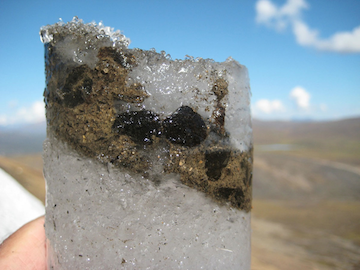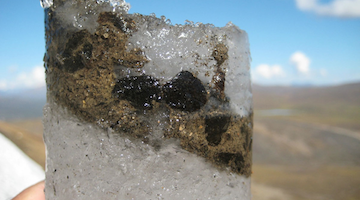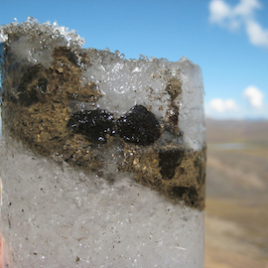
“An ice core containing ancient caribou feces. For thousands of years, caribou gathered on ice patches to escape summer heat and insects. The caribou feces, which contain caribou DNA, digested plants, and viruses, were frozen within layers of ice, enabling researchers to detect the genomes of ancient viruses.” (Credit: Image courtesy of Brian Moorman)
The genome of a virus found in 700-year-old frozen caribous feces was shown to infect plants in the laboratory, a new study reveals.
Researchers analyzed the viral genetic material contained in a core drilled through layers of accumulated caribou feces up to 4,000 years old in an ice patch in Canada’s Selwyn Mountain in the Northwest Territories. A virus likely infecting an arctic plant consumed by caribous and an insect virus were detected.
This study shows that the viral genomes kept under constant freezing conditions can be preserved intact for hundred of years.
Original research paper published in PNAS on October 27, 2014.
Names and affiliations of selected authors

